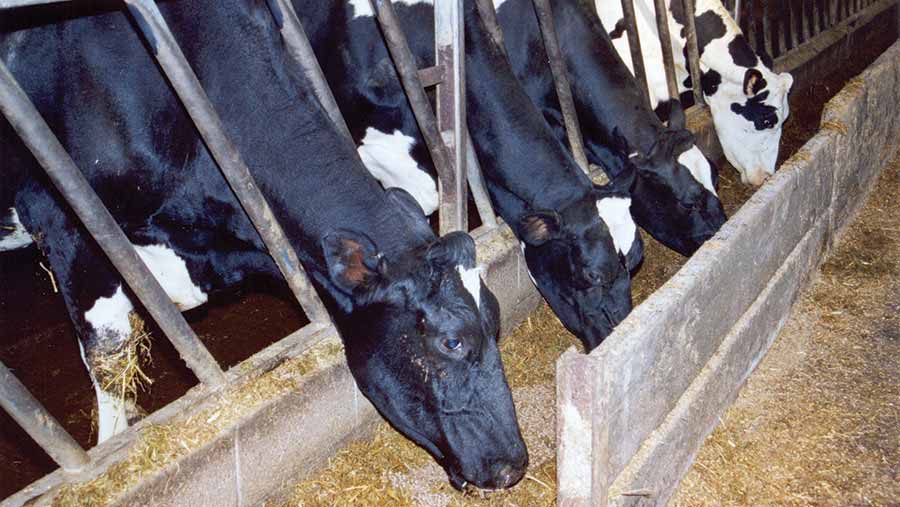Farm income forecasts show dramatic fall for most sectors
 NO REUSE - submitted pic for use with Farmers Weekly, Livestock, 27 November
NO REUSE - submitted pic for use with Farmers Weekly, Livestock, 27 November Farm incomes are forecast to fall significantly in the year to February, with some sectors down by almost half.
Defra’s latest farm business income (FBI) forecast covers the year from March 2015 to this February and include last year’s harvest and the Basic Payment Scheme.
Almost all farming sectors face a fall, with the dairy and pig sectors particularly badly hit.
Figures show average incomes are expected to fall by almost a half on dairy farms in 2015-16 to £46,500 and by 46% on pig farms to £26,500. Cereal farmers are set to see a 24% drop in incomes to £34,000, due to weaker prices driven by plentiful global supplies, declining demand and a stronger pound.
Forecasts of farm business income by type of farm in England
- Cereals £34,000 (down 24%)
- General cropping £43,000 (down 17%)
- Pigs £26,500 (down 46%)
- Poultry £145,000 (up 14%)
- Dairy £46,500 (down 45%)
- Grazing livestock (lowland) £20,000 (up 8%)
- Grazing livestock (LFA) £21,500 (up 47%)
- Mixed £22,500 (up 4%)
See also: Advice on managing cashflow challenge on farms
The only sectors that are seeing substantial rise in income are specialist poultry farms, who are benefiting from reduce input costs and Less-Favoured Area livestock farms, whose estimated 47% rise is mainly due to increased BPS payments for Moorland and Severely Disadvantaged Area (SDA) land.
FBI is the surplus or profit made by a farm business before any unpaid labour is accounted for, so many of these farm businesses will go further into debt once living costs are accounted for.
Falling farm incomes would jeopardise the nation’s future food supply, warned the NFU. President Meurig Raymond said he was not surprised by the sharp falls in income given the low prices across the industry. He said the severity of the declines should serve as a wake-up call across the UK food industry.
“The subsequent cashflow problems this creates for agriculture should be a worry for all in the agri-food sector. Farmers need to be profitable so they can reinvest in the future.
“While the short-term focus is on income and cashflow, the longer-term issues involve better management of risk and volatility. Everyone has a role to play in achieving that. There is no quick fix, but we all have responsibility for achieving a better-functioning supply chain. Only then will farmers have the confidence to invest in the future and build resilience.
“The solutions are out there – forward contracts, formula pricing, supply chain integration – but these currently characterise a disappointingly small proportion of the food supply chain.”
Richard King, partner and head of business research at agribusiness consultant Andersons, urged farmers to continue to make their businesses as resilient as possible, keeping costs down.
“Farmers can’t control the weather, currency and markets or BPS levels, but they can ensure their business is as resilient as possible.”
Even in downturns, opportunities could arise, he said, citing investment deals currently available on agricultural machinery, buildings and infrastructure due to cheaper borrowing rates.
Actual survey results for this time period will be published at the end of October.
